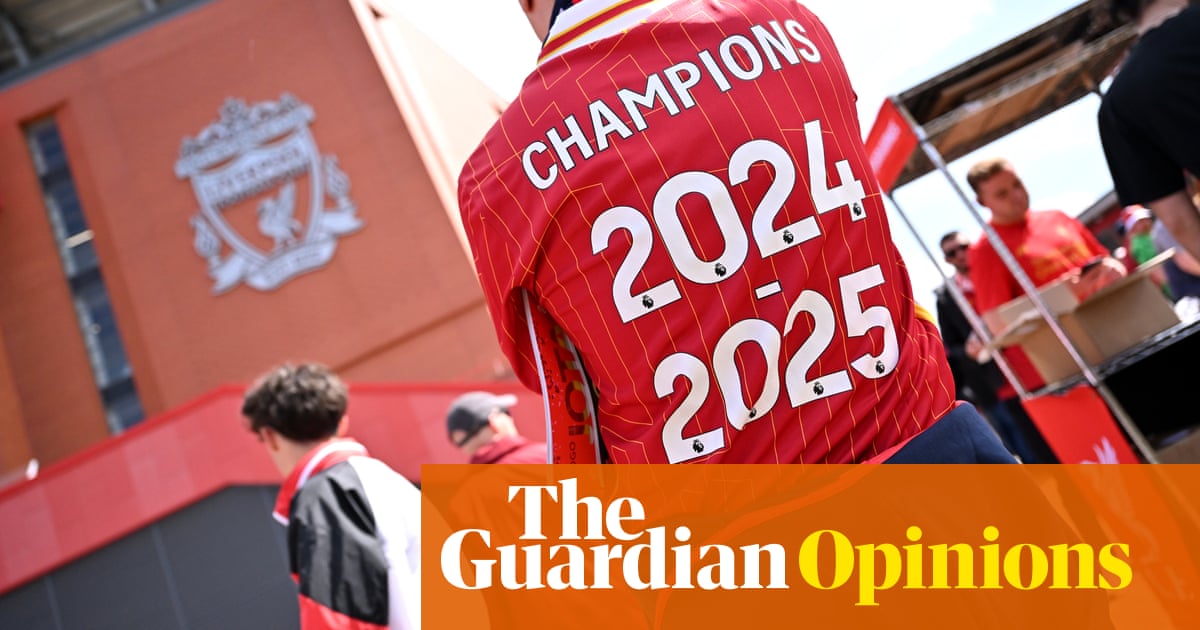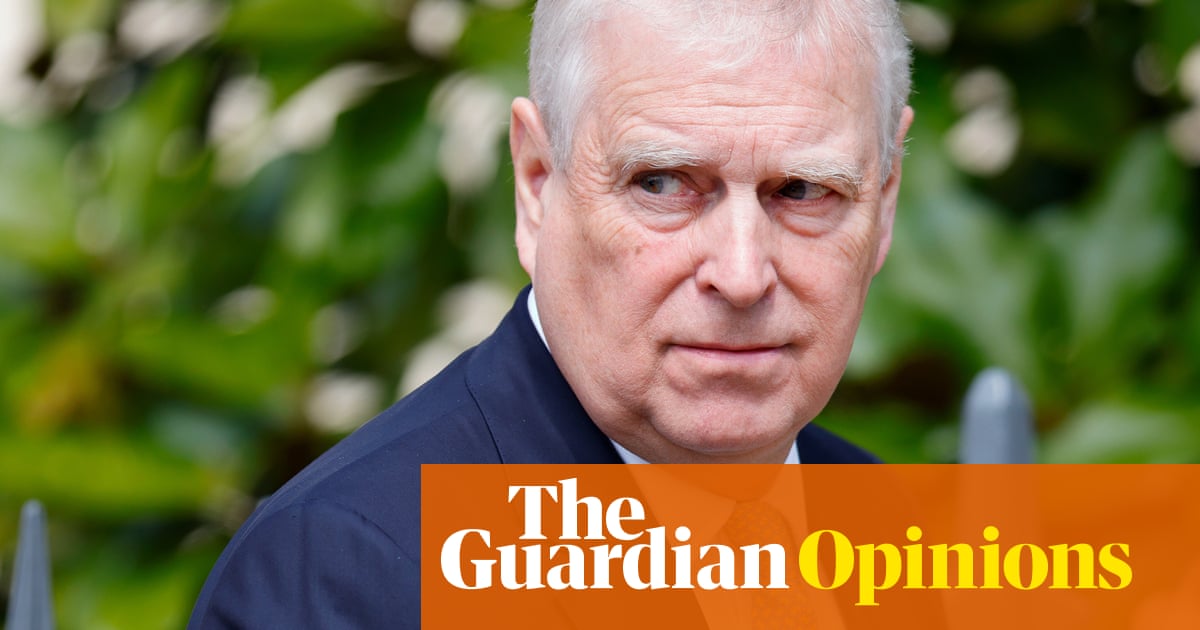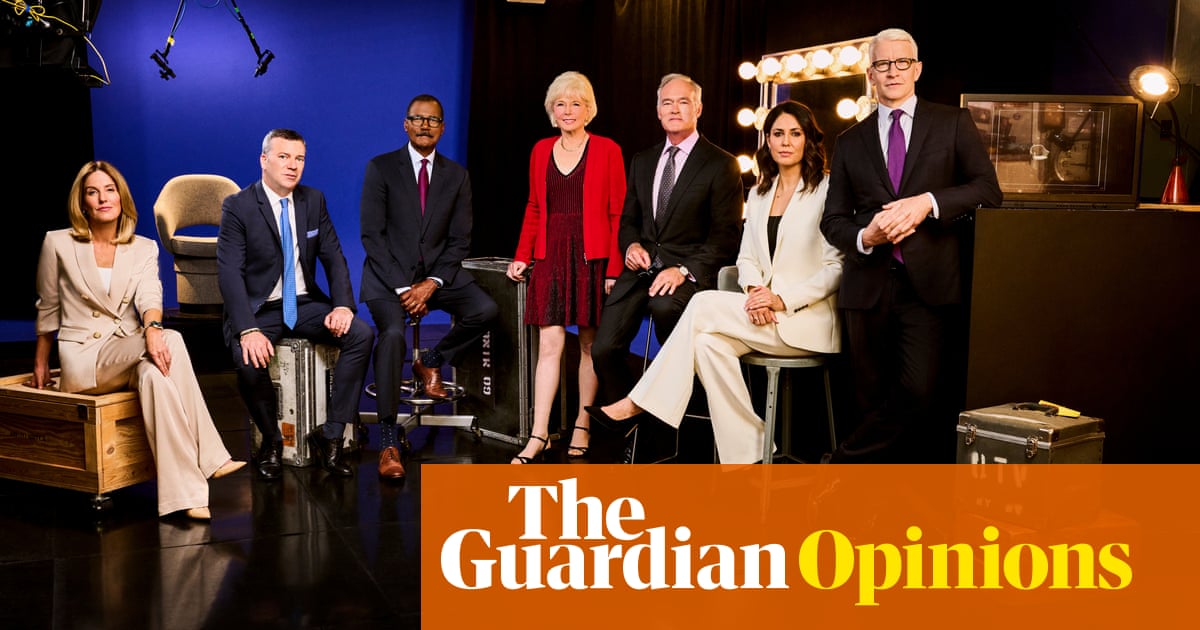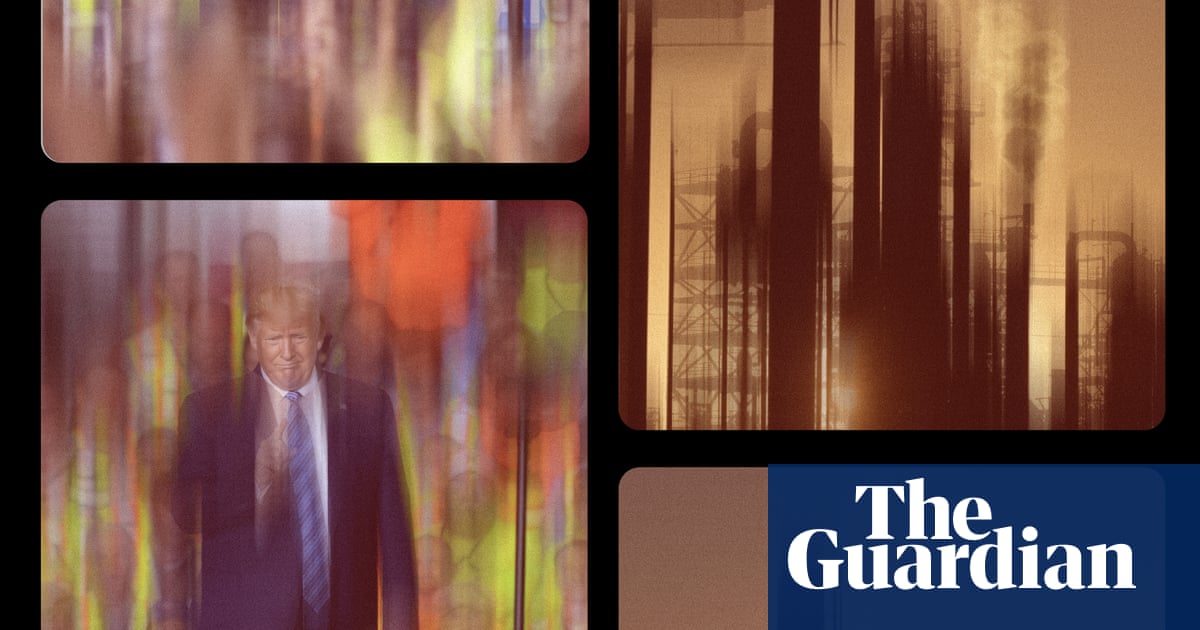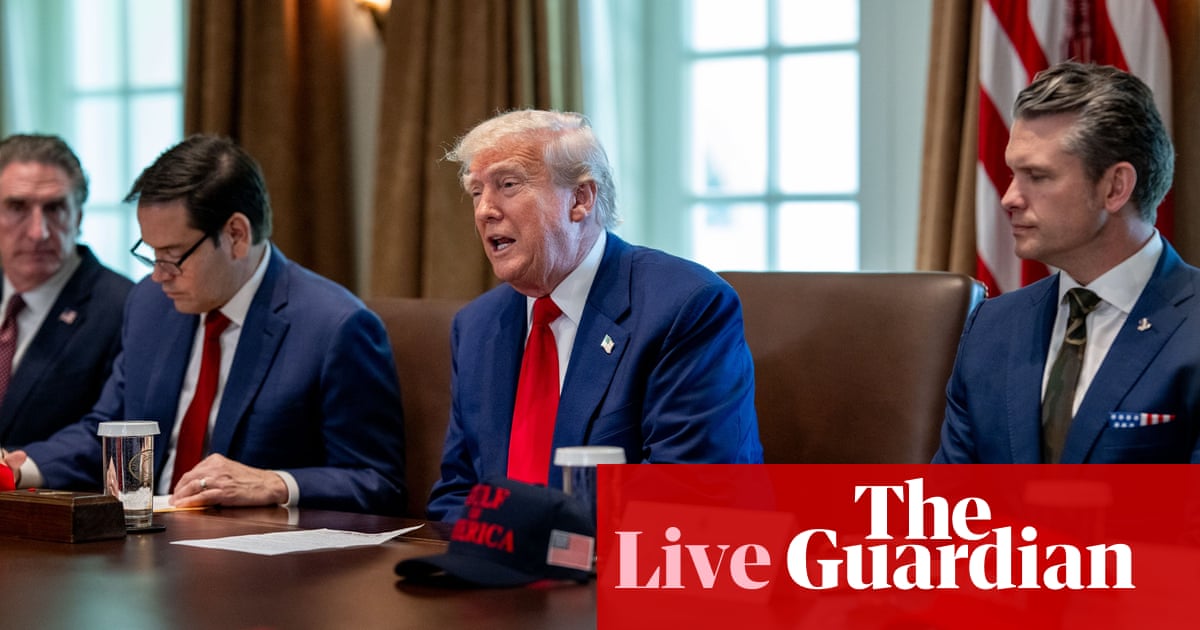Morning opening: Read the small print

Jakub Krupa
Ukraine and the US signed a long-awaited minerals deal last night, signaling a major step forward in bilateral relations. But the full text of the agreement, including key details on the contentious small print issues that dragged out negotiations, has yet to be made public.
Ukrainian prime minister Denys Shmyhal suggested yesterday that the process of ratifying the agreement could start today, with party consultations. Expect more details to emerge.

For now, my colleague Andrew Roth reported that Ukrainian officials have divulged some details of the agreement which they portrayed as equitable and allowing Ukraine to maintain control over its natural resources.
Shmyhal, said that the fund would be split 50-50 with between the US and Ukraine and give each side equal voting rights.
Ukraine would retain “full control over its mineral resources, infrastructure and natural resources,” he said, and would relate only to new investments, meaning that the deal would not provide for any debt obligations against Ukraine, a key concern for Kyiv. The deal would ensure revenue by establishing contracts on a “take-or-pay” basis, Shmyhal added.
Shmyhal on Wednesday described the deal as “truly a good, equal and beneficial international agreement on joint investments in the development and recovery of Ukraine”.
On its face, the deal could be a consequential moment in this war as the US has now a stake in Ukraine’s success and a role to play in its reconstruction and for a business-driven White House, as Donald Trump would no doubt want to think of his administration, this could change the equation.
Unsurprisingly, Russia sees it differently, though, with former president Dmitry Medvedev playing its significance down and presenting the agreement as an act of Ukrainian subjugation to the US, as he argues that Trump has “finally broken the Kyiv regime into paying for American aid.”
We should hear from the Kremlin at some point today, and there will be more reactions from across Europe, too – even as some countries are already enjoying a long May bank holiday weekend.
It’s Thursday, 1 May 2025, it’s Jakub Krupa here, and this is Europe Live.
Good morning.
Key events Show key events only Please turn on JavaScript to use this feature
12 EU countries ask for fiscal flexibility to spend more on defence

Jennifer Rankin
Meanwhile in Brussels, a dozen EU countries, including Germany and Poland, have requested flexibility in the bloc’s fiscal rules to ramp up spending on defence, in a step towards rearmament of the continent.

Ahead of a midnight deadline on Wednesday, 12 EU member states wrote to the European Commission with a request to activate the national escape clause in the bloc’s fiscal rules, which will allow them to increase their deficits in order to increase defence spending.
The 12 countries are Belgium, Denmark, Estonia, Finland, Germany, Greece, Hungary, Latvia, Poland, Portugal, Slovakia and Slovenia. A further four countries, Bulgaria, the Czech Republic, Croatia and Lithuania, have indicated they plan to make the same request.
After Donald Trump signalled US reluctance to underwrite Europe’s defence, European Commission President Ursula von der Leyen opened the door to flexibility in the bloc’s stability and growth pact in a bid to increase defence spending by €800bn.
EU officials estimated in March that if every member state uses the flexibilities to the maximum, defence spending would increase by €650bn over four years. The commission has also announced a €150bn EU-backed loans scheme.
It remains unclear how close the EU will come to the headline number. Officials will be encouraged that Germany, Europe’s biggest economy, is among the number wanting to spend more, but other large member states have so far held back, notably France, Italy and Spain. All three countries have high government debts and are thought to be reluctant to deepen them, even if allowed under EU fiscal rules.
Valdis Dombrovskis, the European commissioner for the economy, said the EU had taken “a decisive step towards boosting its defence spending and readiness”, adding that the commission remained open for more requests.
The requests now have to be examined by the commission, then approved by EU finance ministers, with a decision expected in early July.
Morning opening: Read the small print

Jakub Krupa
Ukraine and the US signed a long-awaited minerals deal last night, signaling a major step forward in bilateral relations. But the full text of the agreement, including key details on the contentious small print issues that dragged out negotiations, has yet to be made public.
Ukrainian prime minister Denys Shmyhal suggested yesterday that the process of ratifying the agreement could start today, with party consultations. Expect more details to emerge.

For now, my colleague Andrew Roth reported that Ukrainian officials have divulged some details of the agreement which they portrayed as equitable and allowing Ukraine to maintain control over its natural resources.
Shmyhal, said that the fund would be split 50-50 with between the US and Ukraine and give each side equal voting rights.
Ukraine would retain “full control over its mineral resources, infrastructure and natural resources,” he said, and would relate only to new investments, meaning that the deal would not provide for any debt obligations against Ukraine, a key concern for Kyiv. The deal would ensure revenue by establishing contracts on a “take-or-pay” basis, Shmyhal added.
Shmyhal on Wednesday described the deal as “truly a good, equal and beneficial international agreement on joint investments in the development and recovery of Ukraine”.
On its face, the deal could be a consequential moment in this war as the US has now a stake in Ukraine’s success and a role to play in its reconstruction and for a business-driven White House, as Donald Trump would no doubt want to think of his administration, this could change the equation.
Unsurprisingly, Russia sees it differently, though, with former president Dmitry Medvedev playing its significance down and presenting the agreement as an act of Ukrainian subjugation to the US, as he argues that Trump has “finally broken the Kyiv regime into paying for American aid.”
We should hear from the Kremlin at some point today, and there will be more reactions from across Europe, too – even as some countries are already enjoying a long May bank holiday weekend.
It’s Thursday, 1 May 2025, it’s Jakub Krupa here, and this is Europe Live.
Good morning.
Trump says minerals deal may give US 'much more' than Washington spent on Ukraine aid
US President Donald Trump has repeatedly said how much Washington’s support for Kyiv in its fight against Russia has drained American resources.
He has said that the US has spent around $350bn (£263bn) on Ukraine aid, though the actual figure is thought to be lower.
“Biden handed them $350bn between cash and military equipment… and we got nothing,” Trump told a town hall on the NewsNation network after the minerals deal was signed.
Speaking over the phone, the US president said: “We made a deal where we get much more in theory than the $350bn.”
Trump said he wants to help secure a lasting peace agreement quickly to stop the deaths of all the soldiers – from both sides – and civilians.
Agence France-presse has produced an interesting “what we know” about the deal so far.
Why the deal?
Donald Trump had demanded compensation for US aid given to Ukraine under Joe Biden’s administration since Russia’s February 2022 invasion.
The US leader had sought $500bn in compensation - around four times the amount that the United States has paid out to Ukraine, which currently stands at $120bn, according to the Kiel Institute, a German economic research body.
Zelenskyy rejected that, saying “ten generations” of Ukrainians would have to pay it off.
Ukraine has agreed to the minerals deal as a way to secure long-term US investment, as Trump has drastically scaled back US security commitments around the world.
Trump has balked at offering security guarantees to Ukraine and rejected its bids to join Nato - but he has said a US presence on the ground would benefit Ukraine.
How will it work?
The two countries will establish a joint Reconstruction Investment Fund, with each side having equal voting rights.
The fund’s profits will be invested exclusively in Ukraine, which will not be asked to pay back any “debt” for to the US.
Ukraine will have “full control over its subsoil, infrastructure and natural resources,” Prime Minister Denys Shmyhal said.
The deal will exclusively finance mineral, oil and gas projects as well as infrastructure and processing in Ukraine for the first 10 years, after which “profits may be distributed between the partners”.
What resources does Ukraine have?
Ukraine holds some 5% of the world’s mineral resources and rare earths, according to various estimates.
But work has not yet started on tapping many of the resources and a number of sites are in territory now controlled by Russian forces.
Ukraine also has around 20% of the world’s graphite, an essential material for electric batteries, according to France’s Bureau of Geological and Mining Research, and is a major producer of manganese and titanium.
It also says it possesses one of the largest lithium deposits in Europe - yet to be extracted.
What does US support mean for Ukraine?
Ukraine has said any deal would need to include long-term and robust security guarantees that would deter Russia from attacking again.
But according to the text published by media, the only security clause puts the United States under no obligation – nor does the deal mention weapons.
It simply says that the US “supports Ukraine’s efforts to obtain the security assurances necessary to build a lasting peace”.
However, a US Treasury statement notably mentioned Russia’s “full-scale invasion” of Ukraine – diverging from the Trump administration’s usual formulation of a “conflict” for which Kyiv bears a large degree of responsibility.
Treasury Secretary Scott Bessent said the deal showed “that the US has an economic interest in Ukraine”.
“It’s a signal to the Russian leadership. It’s also a signal to the American people that we have a chance to participate, get some of our... the funding and the weapons compensation for those,” he told Fox News.
Ukraine’s air force said on Thursday that Russia launched five ballistic missiles and 170 drones during an overnight attack, Reuters reports.
The air force shot down 74 drones while another 68 did not reach their targets likely due to electronic warfare countermeasures, it said.
It did not specify what happened to the missiles or remaining 28 drones.
Democratic congressman Gregory W Meeks, a ranking member of the house foreign affairs committee, called the minerals agreement “Donald Trump’s extortion of Ukraine deal”.
In a statement, he said:
I hope the administration can now turn to the real roadblock for peace: Vladimir Putin. President Zelenskyy has shown time and again that he is willing to negotiate to work towards a sustainable peace; now is the time for Trump to put the pressure on Putin where it belongs …
Unfortunately, Donald Trump has so far demonstrated nothing but weakness by capitulating to Putin every step of the way, with nothing to show for it in return, while fixating his attacks on Zelensky and Ukraine. It should be news to no one that Vladimir Putin is a bully and will only respond to strength, not groveling.
US secretary of state Marco Rubio, who has threatened to step back from his mediation efforts between Russia and Ukraine over the past week, has called the minerals deal a “milestone in our shared prosperity and an important step in ending this war”. In a post on X he wrote:
Thanks to @POTUS’s leadership, today the U.S. and Ukraine signed the Reconstruction Investment Fund Agreement—a milestone in our shared prosperity and an important step in ending this war.
Two people have been killed and another five injured in a Russian drone attack on the Black Sea port city of Odesa, the regional governor, Oleh Kiper, said early on Thursday.
In a post on Telegram, Kiper said the attack had targeted residential buildings, a school, a supermarket, and cars. He said:
Fires broke out in some places, which our rescuers are extinguishing. Two people died and five others were injured as a result of the strike. Medics are providing all necessary assistance to the victims.
He posted pictures of a high-rise block apparently damaged in the attack and of firefighters using a crane to put out flames.

Speaking at a town hall with NewsNation after the deal was signed, Donald Trump said he told Ukrainian President Volodymyr Zelenskyy during a recent meeting at the Vatican that signing the deal would be a “very good thing” because “Russia is much bigger and much stronger.”
Asked whether the minerals deal is going to “inhibit” Russian leader Vladimir Putin, Trump said “well, it could.”
UK foreign secretary David Lammy has welcomed the deal between the US and Ukraine. In a post on X he said:
The UK welcomes steps taken by the US and Ukraine to sign an economic partnership. The UK’s support for Ukraine remains steadfast. With our 100-year partnership, we are deepening economic and security ties for the future generations of both of our countries.
Opening summary
Hello and welcome to our live coverage of Ukraine, which has signed a deal to share revenues from the future sale of minerals and rare earths with the US after months of fraught negotiations.
The agreement “signals clearly to Russia that the Trump administration is committed to a peace process centered on a free, sovereign, and prosperous Ukraine over the long term,” US treasury secretary Scott Bessent said in announcing it.
“To be clear, no state or person who financed or supplied the Russian war machine will be allowed to benefit from the reconstruction of Ukraine,” he added.
Ukraine’s prime minister, Denys Shmyhal, said on national television that the agreement, which must be ratified by Ukraine’s parliament, was “good, equal and beneficial”.
In a post on social media he said the two countries would establish a reconstruction investment fund with each side having 50% voting rights and made clear that Kyiv would not be asked to pay back any “debt” for US aid during the war.
The deal had been a source of great friction between the US and Ukraine, including a disastrous February meeting between Donald Trump and Volodymyr Zelenskyy in which Trump and his vice-president, JD Vance, shouted at the Ukrainian leader in front of live TV cameras.
Ahead of the meeting Zelenskyy had alleged the US was pressuring him to sign over more than $500bn (£395bn) in mineral wealth – about four times what the US has contributed to Kyiv since the start of the war and which Zelenskyy had said would take 10 generations of Ukrainians to pay back.
Here’s a roundup of key developments:
-
Ukraine’s first deputy prime minister Yulia Svyrydenko, who was in Washington to sign the fund, said that Ukraine would retain full ownership of resources “on our territory and in territorial waters belong to Ukraine.” There would be no changes to ownership of state-owned companies, she said and income would come from new licences for critical materials and oil and gas projects, not from projects which had already begun.
-
There would be no changes to ownership of state-owned companies, she said, “they will continue to belong to Ukraine”. That included companies like Ukrnafta, Ukraine’s largest oil producer, and nuclear energy producer Energoatom.
-
Income would come from new licences for critical materials and oil and gas projects, not from projects which had already begun, Svyrydenko said. Income and contributions to the fund would not be taxed in the US or Ukraine, she said, “to make investments yield the greatest results”.
-
Ukraine’s prime minister, Denys Shmyhal, said in a post on social media tht the agreement was based on five key principles, including equal voting rights between the parties and no debt obligations for Ukraine. He also said the fund would not be an obstacle to Ukraine’s EU accession talks.
-
It was unclear up until the last moment whether the US and Ukraine would manage to sign the deal. Washington reportedly pressured Ukraine to sign additional agreements, including on the structure of the investment fund, or to “go back home”. Bessent later said the US was ready to sign though Ukraine had made some last-minute changes.

 4 hours ago
7
4 hours ago
7





